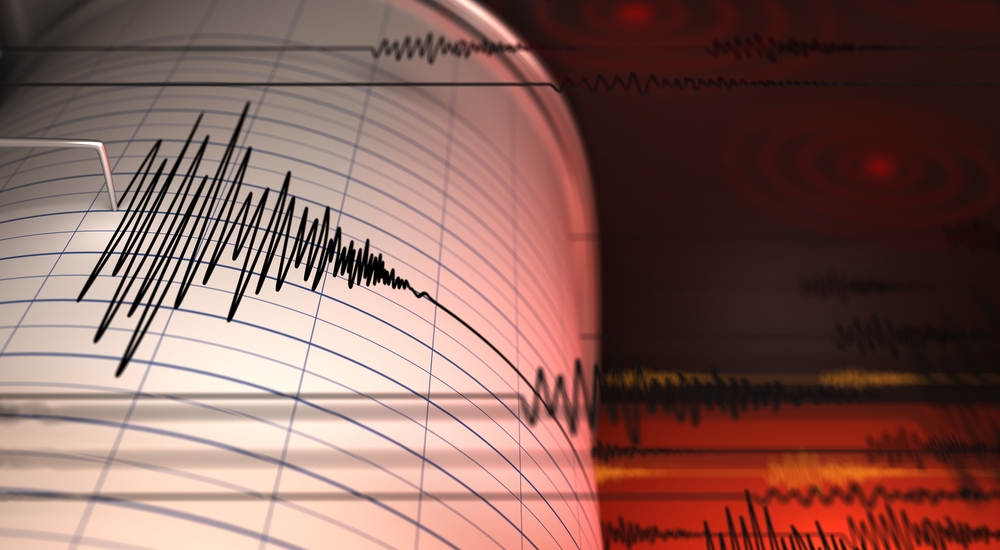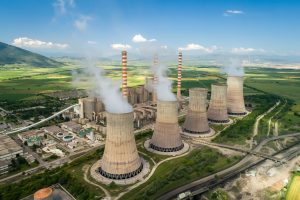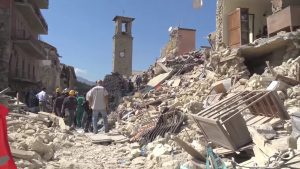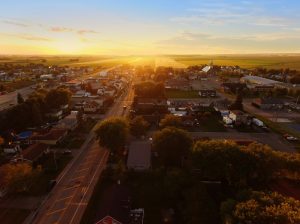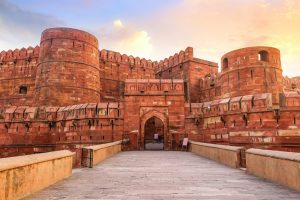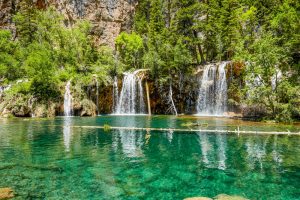Earthquakes cause damaging fires because they cause ground ruptures and landslides that break buildings and gas lines, which leads to damaging fires.
Fires are considered the second most common problem or hazard after an earthquake. Earthquakes can also cause landslides and tsunamis which will disrupt infrastructure and could result in explosions and extreme fires.
When life or the earth is disrupted or damaged, fire is the most common result during and after an earthquake.
Earthquakes often cause damaging fires because they disrupt the earth and the infrastructure of the area they are in.
This disruption leads to damaged buildings which can result in explosions or destruction of gas lines.
When gas lines are destroyed or broken – caused by the violent shaking – earthquakes may cause a life-threatening fire.
Table of Contents
What are the impacts of earthquakes?
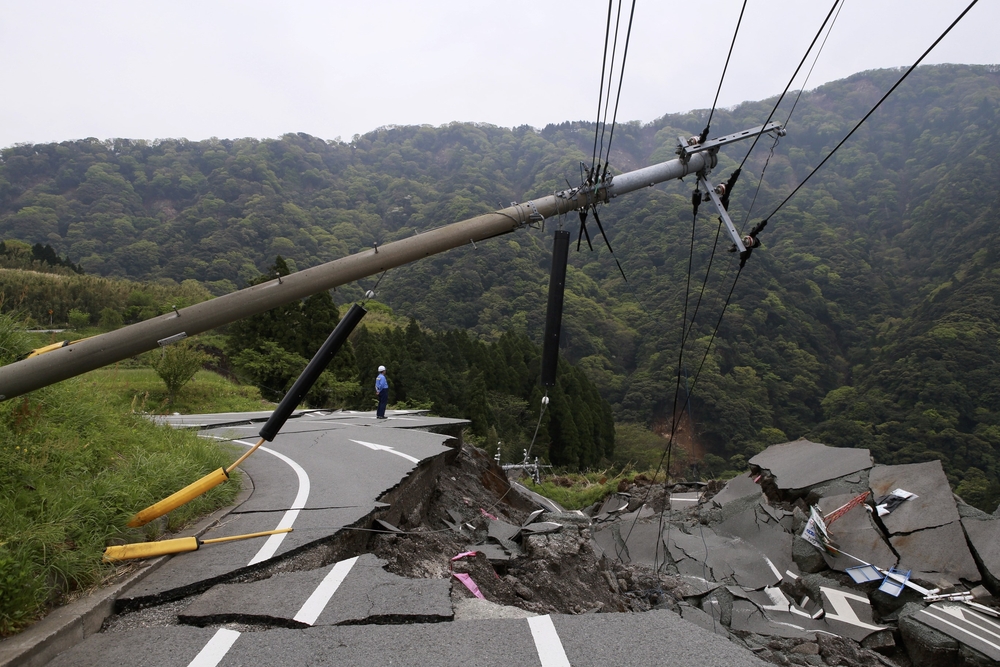
The immediate impacts of earthquakes include landslides, ground ruptures, and fire. Tsunamis are also a frequent impact of earthquakes.
These impacts are the result of the shaking and rupture of the ground, which results in considerable property loss and injury.
Additionally, the ground shaking will rupture gas lines and result in explosions, which are the second most damaging impacts of earthquakes.
Buildings will collapse after an earthquake, and roads and bridges could be destroyed. Chemical spills occur, cars are thrown off the road, and buildings could crumble to the ground.
Anywhere there is flammable liquid or gas there is going to be a fire. Building collapse and disrupted power and gas lines are the most significant problem after an earthquake, causing both fire damage and loss of property and life.
Earthquakes cost countries billions of dollars in economic losses annually when they occur, with some regions experiencing more losses than others.
Loss of life is the leading loss after an earthquake, with property losses the second greatest impact.
In many cases, fire after or during an earthquake is the main cause of both loss of life and property loss.
How do fires start from an earthquake?
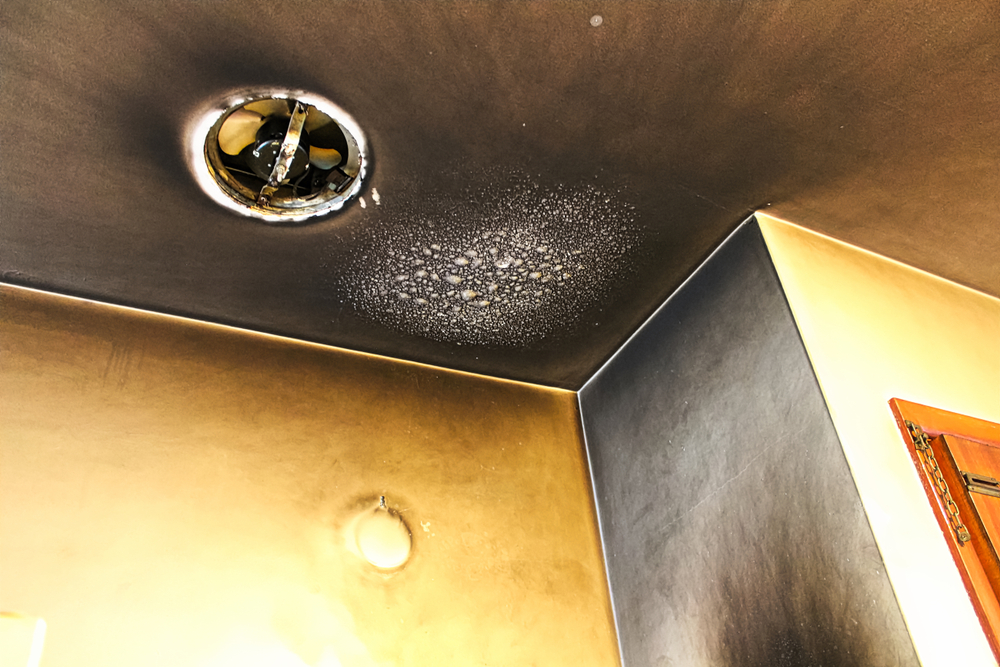
Earthquakes cause disruption, and when that disruption is near a fire hazard, such as a lit candle or a broken gas line, fires will start.
Before gas lines, when candles were used to light buildings in place of electricity, earthquakes would cause significant fire damage.
Before the start of the twentieth century, when an earthquake occurred, it would destroy candles, fireplaces, and ovens.
Today, we use those same elements in our lives. We also have gas lines and electrical wiring that, when damaged or destroyed, can cause significant damage.
When damage occurs as a result of an earthquake, ignitable substances or property result in fire.
The problem with fires and earthquakes is that when the damage is caused, the ground or area in which the earthquake occurs shakes and moves.
If a fire starts as a result of the moving ground, the fire can spread very easily and very quickly. If there is wind in the area or region of the earthquake, the fire will move even faster.
Along with other property problems and consideration for safety and loss of life, earthquake fires can be a problem that is very difficult to contain.
What earthquakes in history have caused fires?
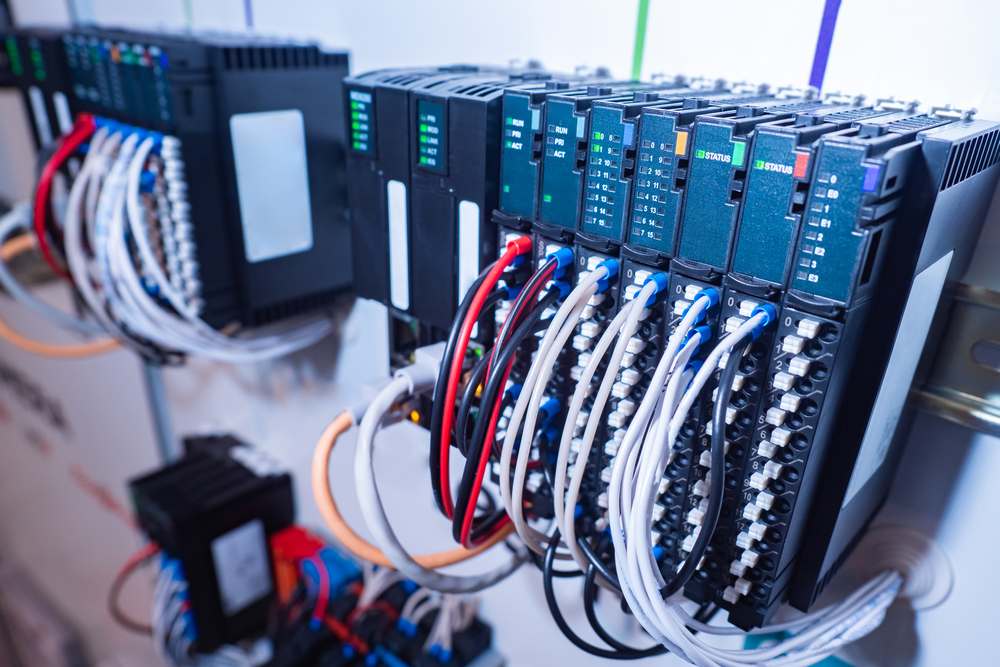
In some cases, such as the 1994 Northridge quake, water was streaming through the streets during the earthquake.
Many might think that would prevent a fire, but it does not. The gas mains were damaged during this fire, and the earthquake was throwing out power lines and electrical wiring.
When that happens, the instinct is to light candles, which can easily cause a fire if they are knocked over or around flammable materials.
During an earthquake, any ground movement is going to result in the possibility that fire could occur.
The 1923 earthquake in Kanto, Japan, resulted in over 100 thousand deaths. It was estimated that approximately 70 thousand of those deaths were caused by fire.
Fires after an earthquake are classified by codes by most governing and regulatory agencies.
It is true that it only takes one spark to cause incredible damage and loss of life.
How can fires be prevented during and after an earthquake?
Fires caused by earthquakes are often the result of some other damage and acting quickly once this damage occurs can prevent the start or spread of fire.
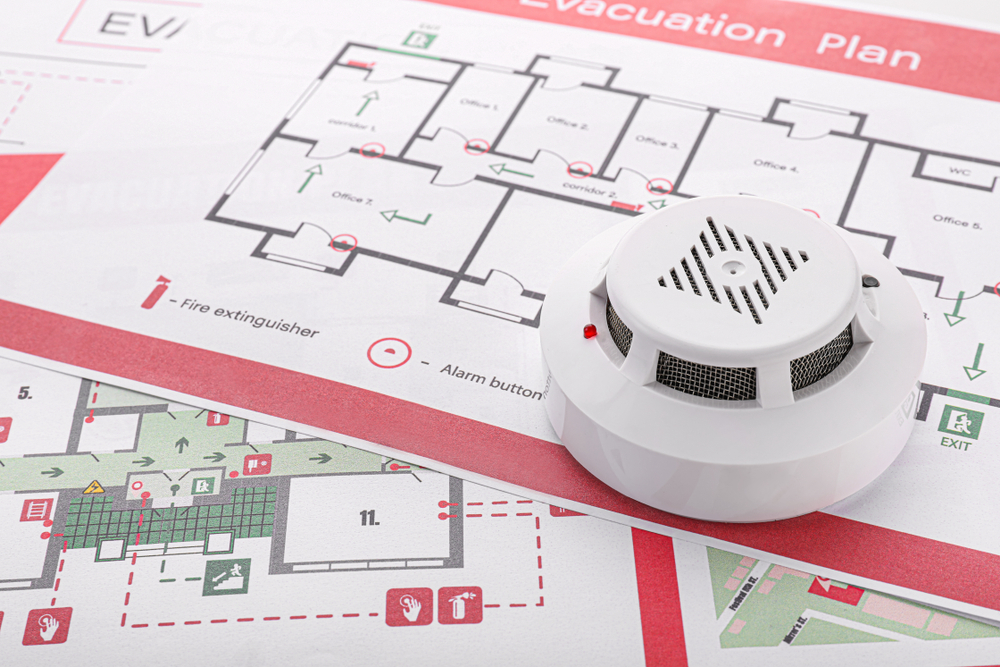
If for example, a candle is going or the fireplace is running before an earthquake begins, putting those out when the warning arrives can help prevent fires.
When you know that an earthquake is coming, you want to keep the family or business safe first and foremost.
Having a fire plan is one way to help prevent fires during and after an earthquake. You will need to have a clear escape plan as well for the possible event of an earthquake, or a fire caused by one.
Make sure that your exit plan is clear of any furniture or belongings, and humans also should know how to turn off the main power and gas lines when you are expecting an earthquake.
This can minimize the impact of fire. You should learn where the shut-off valve of your gas line is. It could be near your gas meter or the entrance of your home.
How do you turn off gas lines during an earthquake?
Turn the gas line to the horizontal position – this will turn the gas line off.
If the line is already parallel to the gas line, that means that the gas line is open when you arrive at it.
You will need to turn the gas line to the perpendicular position in this case.
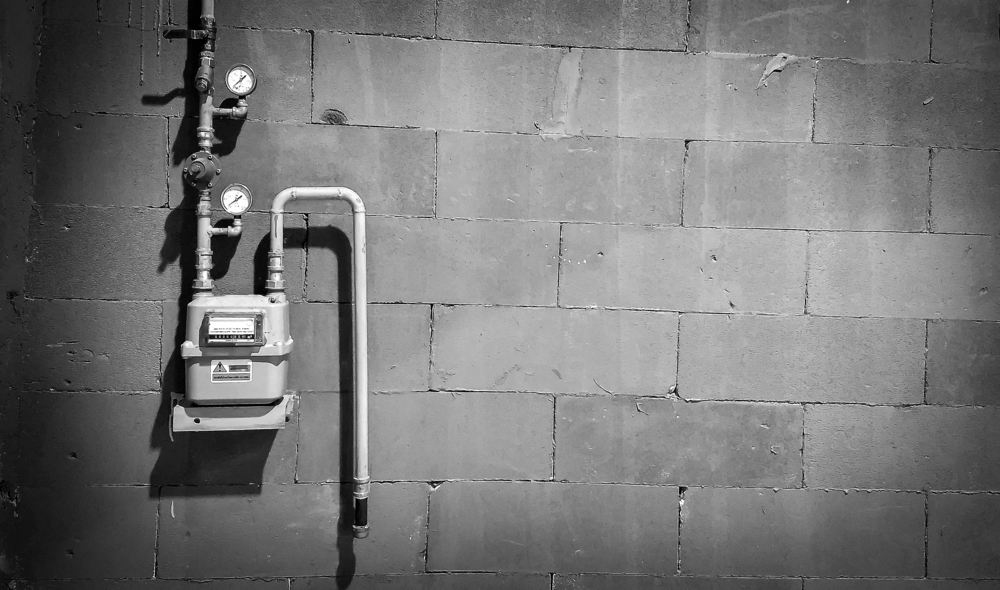
Once the gas line has been closed, you should evacuate as soon as you can. It’s also a good idea to keep fire extinguishers in every room of your home to ensure that you have a quick remedy if a fire starts in the home.
This is good for those that stay home during an earthquake.
Do not try to put out a fire if it is caused by a broken gas or power line. Escape immediately to avoid a larger tragedy.
You can tell if a gas line has broken or if there is a gas leak if you smell rotten eggs. Call the gas company for help and to report that.
Again, evacuate immediately.
How dangerous are fires during and after an earthquake?
Fires are exceptionally dangerous and can occur at any point during an earthquake. The safest plan if you are in the region of the earthquake is to evacuate immediately.
The earthquake will cause shaking and earth disruption and the smallest spark could ignite into a very large and dangerous problem.
Any movement of the earth could damage a gas line in the immediate and surrounding area.

Earthquakes can also impact infrastructures such as roads and bridges, and this could damage your car.
Anything with an engine or fuel in it is at risk during an earthquake. The safest thing for anyone to do here is to get out of the vehicle immediately and find safety.
What is liquefaction?
There is also the danger of liquefaction, which occurs when the earth’s soil is disrupted, and the soil loses its stability and strength.
Liquefaction is the soil’s response to an earthquake or a significant stressor such as an earthquake.
Here, the soil functions as a liquid instead of a solid, and when combined with disrupted gas lines or downed electrical wiring the outcome is disastrous.
At the same time, water lines may be down, and it may be difficult to find what is necessary to put out the fire, even small fires during and after an earthquake.
Additionally, when buildings are damaged, any flammable materials that are contained within are at risk of becoming combustible materials that merge with fire hazards and become a significant fire.
Even exposure to flammable materials can cause a problem during and after an earthquake.
When buildings shake during an earthquake, any kind of debris or flammable garbage can move into empty spaces and find a spark to ignite during the disaster.
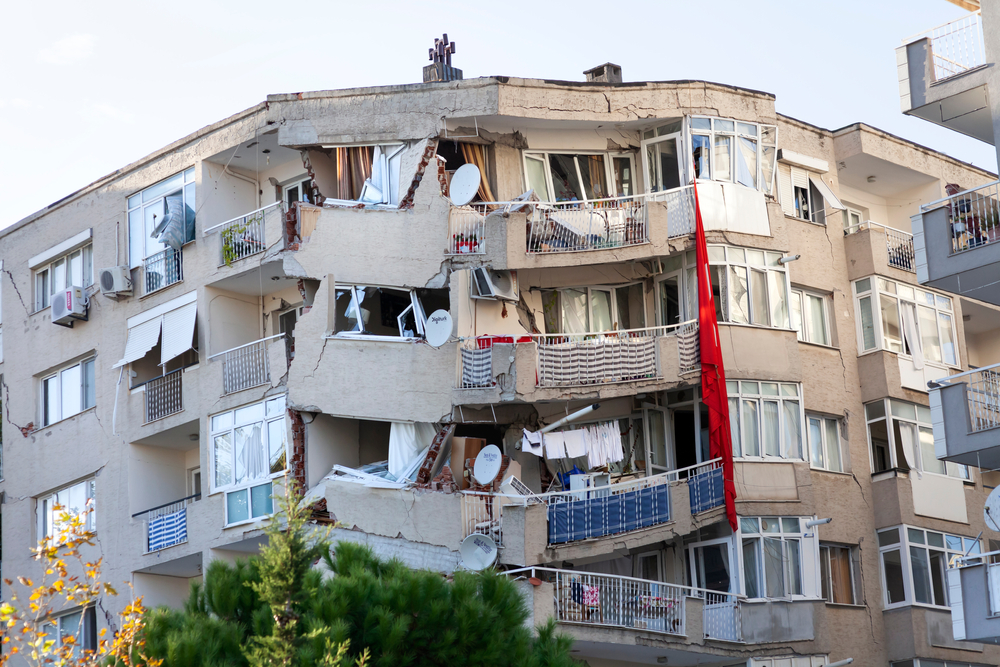
There is some hope when a power outage occurs during an earthquake. This could delay or stall the impact of fire, but as soon as the switches move to on again the risk of fire is significant.
How dangerous is liquefaction during an earthquake?
Liquefaction during an earthquake is considerably dangerous. Liquefaction is going to occur when loos soil loses its stability during an earthquake.
It is estimated that the earthquake needs to be at a 4 or 5 magnitude on the Richter scale to cause liquefaction.
Liquefaction is considered one of the leading problems of earthquakes and a significant cause of fires.
During an earthquake, large booms are going to be heard when the earthquake reaches a significant size and impact.
Those booms are explosions and will be the cause of the largest fires in an earthquake.
In the United States, coastal areas are the most at risk for earthquakes and liquefaction damage.
That will occur on the Northeastern and East Coast the most often. However, the 1989 Loma Prieta earthquake in California resulted in liquefaction that caused some fires.
The magnitude of that earthquake was 7.1 on the Richter scale, and many buildings were lost, resulting in a significant amount of homelessness.
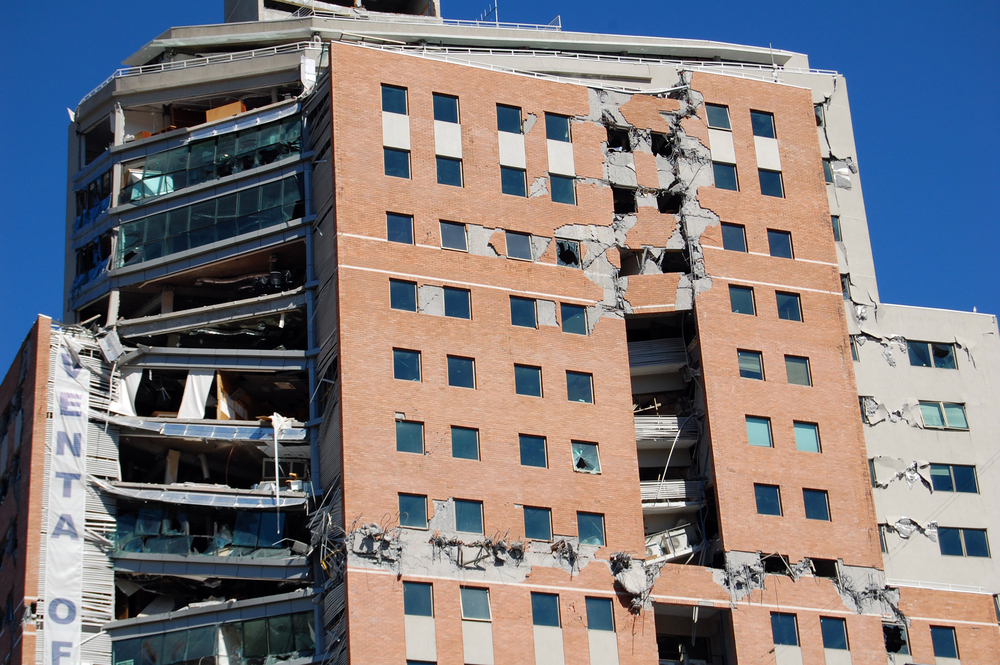
What other damage do earthquakes cause?
In addition to fire, earthquakes can cause other damage. Tsunamis and landslides are the most common.
Some fire damage can occur from these problems as well.
A landslide occurs when the earth is damaged or shaken to the point that rocks and debris will fall at significant rates.
When rocks and earth move as a result of a major disruption, it is as if a massive waterfall of debris occurs in the area, but instead, it is garbage and earth movement with some liquefaction.
Massive rocks moving are part of landslide activity. Earthquakes are a large cause of landslides, which cost the United States alone billions of dollars a year in damages.
Tsunamis are another disaster that occurs after an earthquake. A tsunami begins in the water and is an earthquake coupled with water.
The shaking of the earth in the body of water results in a long generation of consistent waves.
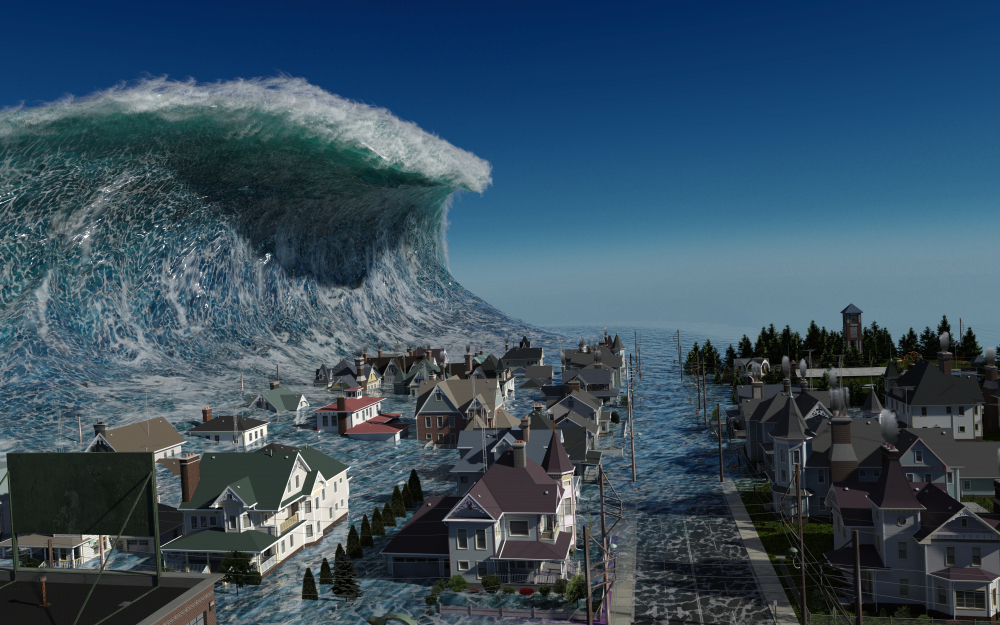
These waves will travel, and the impact is devastating. The Japanese earthquake and tsunami in 2011 were called the Sendai Earthquake and are considered one of the worst in history.
This earthquake registered at over 9 on the Richter scale and resulted in almost twenty thousand deaths.
It also resulted in tsunami fires or earthquake fires which were a leading cause of death. Earthquakes and fires go hand in hand.
Fires are the second-largest problem after earth disruption and are caused by every other kind of damage that earthquakes cause.

